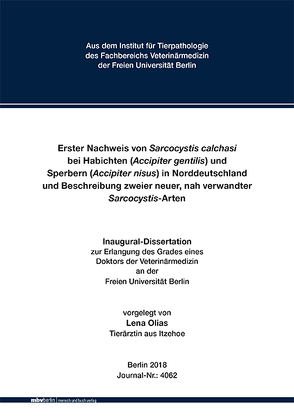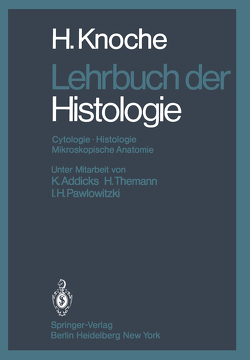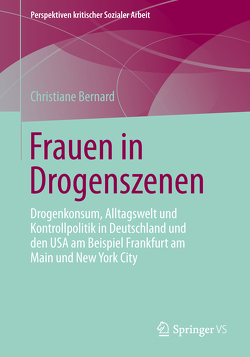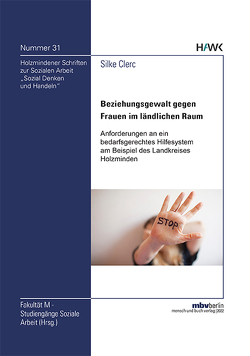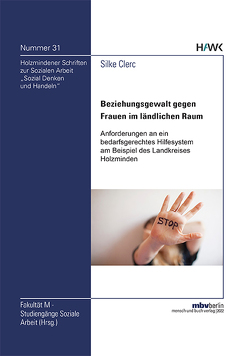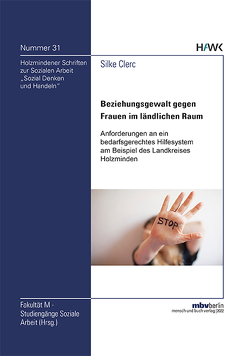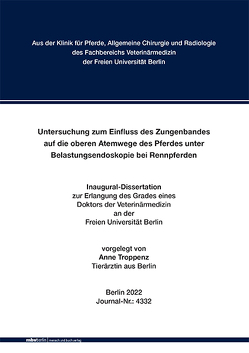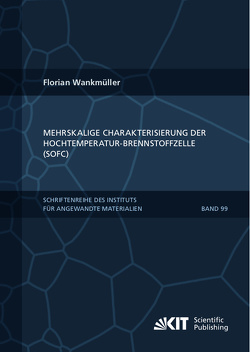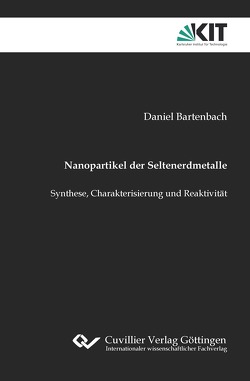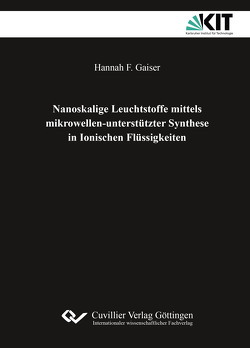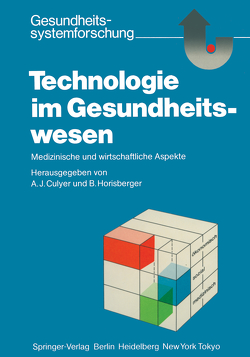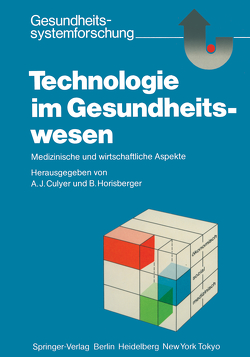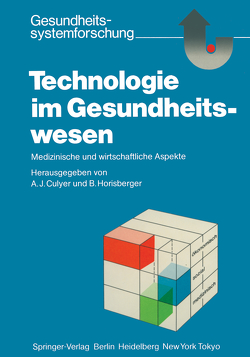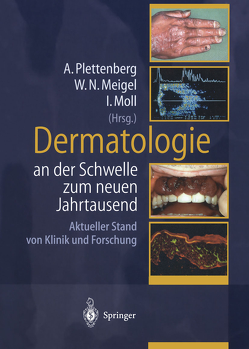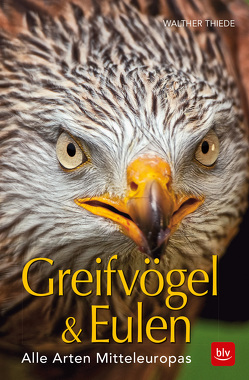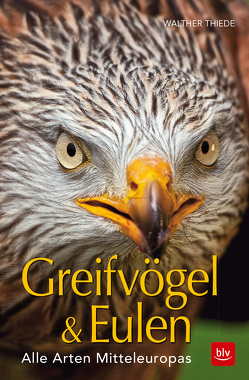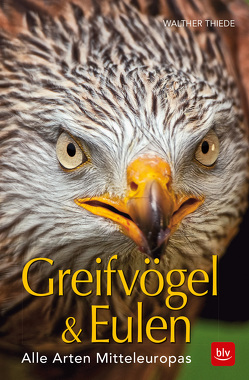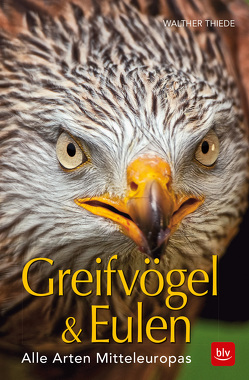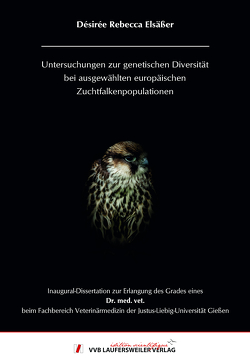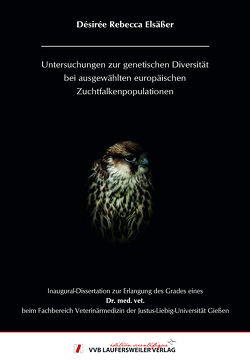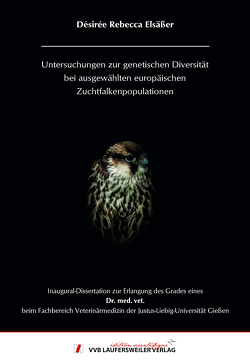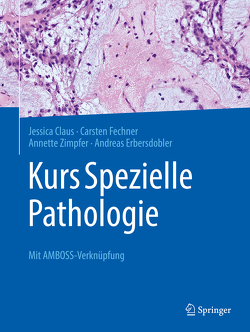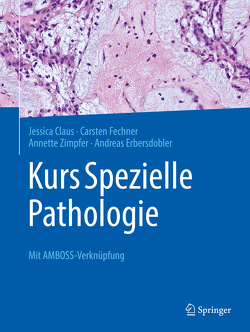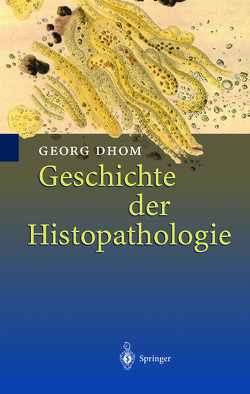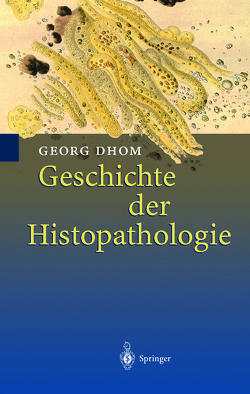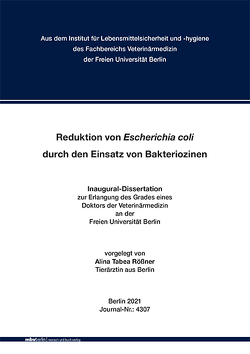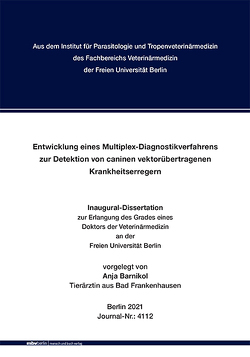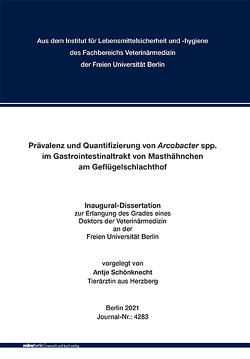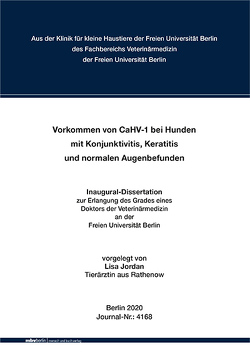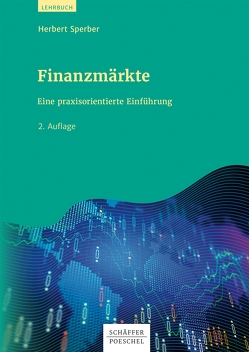Erster Nachweis von Sarcocystis calchasi bei Habichten (Accipiter gentilis) und Sperbern (Accipiter nisus) in Norddeutschland und Beschreibung zweier neuer, nah verwandter Sarcocystis-Arten
Lena Olias
First description of Sarcocystis calchasi in Northern goshhawks (Accipiter gentilis) and European sparrowhawks (Accipiter nisus) from Northern Germany and description of two closely related novel Sarcocystis species
Sarcocystis calchasi was first described in 2009. This apicomplexan parasite is known as the causative agent of a severe central nervous disease in domestic pigeons (Columba livia f. domestica) with fatal losses in lofts of racing pigeons. Clinically, the disease is highly similar to important diseases of pigeons, such as paramyxovirosis and salmonellosis. Recently, the Northern Goshawk (Accipiter g. gentilis) and the domestic pigeon have been identified as final and intermediate hosts, respectively, in a two-host life cycle. So far, the parasite has only been found in pigeons in the Berlin area. For this reason, this thesis project aimed at understanding the prevalence of S. calchasi in goshawks and phylogenetically closest related hosts.
Since avian Sarcocystis species are generally known for their low host specificity, the focus of this work was, first, to identify further potential final and intermediate hosts of S.calchasi. Therefore, it was evaluated by the use of cross-Sarcocystis PCR, whether European sparrowhawks (Accipiter n. nisus) and wood pigeons (Columba palumbus) may also harbour S. calchasi. Two so far unknown Sarcocystis species were discovered and further characterized by light and electron microscopy, PCR and sequencing of the ITS1-region, the 18S and 28S rRNA genes and phylogenetic analysis. They were subsequently named Sarcocystis columbae sp. nov. and Sarcocystis sp. ex A. nisus. In comparison, both parasites were closely related to S. calchasi and form a clade in phylogenetic analysis with other species using birds of prey as their final hosts.
In a next step based on the sequences of the newly described Sarcocystis species and all publically available sequences, species-specific semi-nested PCRs for S. calchasi, S. columbae and Sarcocystis sp. ex A. nisus were established. This method offers a high sensitivity and specificity and even small amounts of DNA can be amplified as needed for retrospective studies of archived material. Surprisingly, 92% of the goshawks and 100% of the sparrowhawks tested positive for at least one Sarcocystis species and about 50% of all birds were infected with all three species. S. calchasi was detected in goshawks from Berlin already in 1997. Since pigeons are generally not preyed by sparrowhawks, it is tempting to speculate that the host range of S. calchasi and S. columbae is larger and may also comprise songbirds. Given the largely overlapping distribution areas of domestic pigeons, wood pigeons, goshawks and sparrowhawks, S. calchasi might be much more widespread than previously thought and requires further clarification in epidemiological studies. Moreover, the anthropogenic contribution to the spread of the parasite by falconry and pigeon sport should also be addressed in future studies.
